Blogs
Is it Safe to Use EOS Newly Launched Platform?

Last Saturday, a popular cryptocurrency, EOS, finally managed to launch its platform. However, the platform has yet to go live, and the process appears to be stuck. The reason for this is the necessity of its token holders to provide their wallet’s private keys in order to participate in getting the platform to take the final step.
The platform is ready, the users are not
The biggest question these days, when it comes to EOS’ community is whether or not its token holders trust it enough. The popular cryptocurrency finally managed to launch its new platform, which was anticipated for a long time now. However, the job has yet to be finished, and the platform has not gone live yet. Despite the fact that everything is finished and prepared, one key ingredient is still missing – the token holders.
EOS wanted to try and achieve decentralization, which puts the governing power into the hands of its users. Those include both, companies, as well as individuals who can be identified as EOS token holders. By providing proof that they are in possession of EOS tokens, the people would get the ability to choose who will process the future transactions and to vote on various issues within the platform.
However, to do all that, they must first provide that final piece of proof that they do, indeed, have the cryptocurrency’s coins in their wallets. To prove this, they have to provide their wallet’s private keys, which are extremely sensitive cryptographic strings. Losing such a key would mean losing all of the stored funds, which means that people will have to take an incredible risk in order to make this platform work.
EOS’ users are more than willing to participate, but less so when such a risk is involved, which is a pretty large oversight on EOS’ part. So far, the platform only got 37% of the necessary 150 million votes which are the amount needed to get the blockchain running properly.
Now, there are some ways around this issue, which include third-party security software, which would confirm that the person is in the possession of the tokens, while the private keys would remain safe, or at least safer than they would be otherwise. One such software, created by EOS’ parent company, is called CLEOS. However, the problem with CLEOS is that it can be quite complicated to use it, which ultimately forces the users to turn to simpler software, which is also far less safe. Not only are there many scammers that were just waiting for such a confusion to arise, but there are also hackers who have proved to be unstoppable when they put their minds and keyboards to a certain task.
Why are the private keys needed?
There are basically two main reasons why private keys are required in order for a person to access the voting process. The first one is to make sure that the vote is legitimate. The ability to vote is reserved only for those who hold EOS tokens, which makes sense. It is the community and the platform that will be impacted by the decision reached by voting, which means that only those who will be impacted should have access to the voting process.
The second reason is the necessity to take a peek into the user’s wallet and determine their holdings. That way, the ‘weight’ of the vote can be measured by the system. This also makes sense, since those with more tokens will have more to lose in case of ‘bad’ voting, which means that they would need some extra voting power to tip the scale. This way of doing things might be putting slightly more power into the hands with those who have more funds, which is a step away from total decentralization, but all voters have the right and the ability to vote, no matter how many tokens they have, which is as far as it can get in this situation.
The requirement to submit the private key is a necessity in order to vote, and there is no bypassing that. In a way, a private key acts as some sort of a signature, only with much higher risk in case of it being exposed. The risk of exposure is real, and its probability depends on the software that is being used. The more user-friendly the software gets, the less safety for the users themselves is involved.
Solutions to the problem
There are several ways in which this kind of issue might be solved. One of them includes creating multiple private keys that would be used for managing one account. However, most users don’t even know that this possibility exists, much less how to actually do it.
There is a possibility of making a private key that would allow users to vote, but would not be linked to their wallet. However, there is a very limited amount of guides that explain how to do this, which makes it nearly impossible for it to become a general solution. EOS Canada team will try to help out with spreading this information by creating a video explained.
Another potential solution is for users to start using a downloadable voting tool, which would run on their computer, with no connection to browsers. Browsers can be a danger to user privacy due to a possibility of toolbar manipulation, botnets, as well as various other bad actors.
Also, it goes without saying that the users should only use software provided by reputable companies, and not some shady brand that nobody ever heard of before. Tools that are recommended include LiquidEOS, Scatter, EOSC, and Greymass.
Another solution includes using a specially designed tool for offline voting, developed by Tokenika. However, there is always a possibility that the users’ devices are already infected by malware that might steal their information from the device, even if the whole process is done offline.
Obviously, there are a lot of dangers when it comes to sharing a private key, which makes it perfectly understandable why the EOS token holders are indecisive. However, there are also a lot of possible solutions, which come with their own risks, true. However, those risks can be reduced by researching these methods and taking every precaution.
For the latest cryptocurrency news, join our Telegram!
Disclaimer: This article should not be taken as, and is not intended to provide, investment advice. Global Coin Report and/or its affiliates, employees, writers, and subcontractors are cryptocurrency investors and from time to time may or may not have holdings in some of the coins or tokens they cover. Please conduct your own thorough research before investing in any cryptocurrency and read our full disclaimer.
Image courtesy of Pexels
Altcoins
XNO Token of Xeno NFT Hub listed on Bithumb Korea Exchange
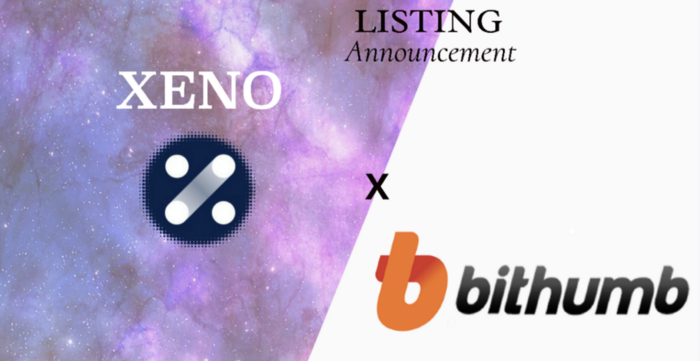
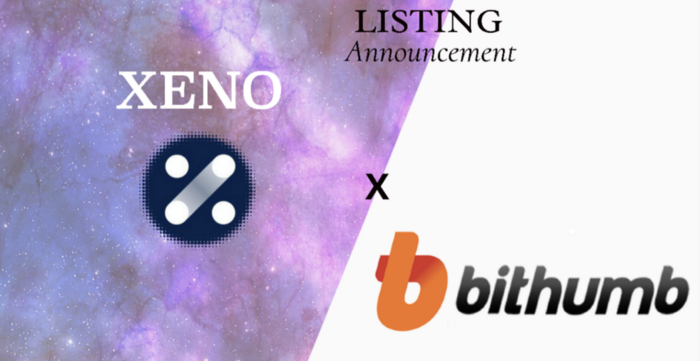
Hong Kong, Hong Kong, 25th January, 2021, // ChainWire //
Xeno Holdings Limited (xno.live ), a blockchain solutions company based in Hong Kong, has announced the listing of its ecosystem utility token XNO on the ‘Bithumb Korea’ cryptocurrency exchange on January 21st 2021.
Xeno NFT Hub (market.xno.live ), developed by Xeno Holdings, enables easy minting of digital items into NFTs while also providing a marketplace where anyone can securely trade NFTs.
The Xeno NFT Hub project team includes former members of the technology project Yosemite X based in San Francisco and professionals such as Gabby Dizon who is a games industry expert and NFT space influencer based in Southeast Asia.
NFT(Non-Fungible Token) technology has recently gained huge focus in the blockchain arena and beyond, making waves in the online gaming sector, the art world, and the digital copyrights industry in recent years. The strongest feature of NFTs is that “NFTs are unique digital assets that cannot be replaced or forged”. Unlike fungible tokens such as Bitcoin or Ether, NFTs are not interchangeable for other tokens of the same type but instead each NFT has a unique value and specific information that cannot be replaced. This fact makes NFTs the perfect solution to record and prove ownership of digital and real-world items like works of art, game items, limited-edition collectibles, and more. One of the ways to have a successful…
Altcoins
Should Crypto Projects Devote Resources to Community Growth and Marketing?

2020 has been an incredible year for crypto as investors have generated windfall profits and crypto projects have seen their businesses gain the spotlight they’ve been looking for. While Bitcoin has received most of the attention after major institutional investors announced they were accumulating the increasingly scarce asset, many altcoins have also seen their fair share of glory. When looking at all the big winners of the past year, the first project that probably comes to mind is Chainlink, having appreciated by more than 550% YTD and now valued at over $4.5 billion. But, the actual biggest winner of the year is HEX with a YTD return of over 5,000%.
I mention both of the above projects as they have each taken slightly different paths to achieve greatness. Chainlink has devoted resources toward building a fundamentally sound business with many strategic partnerships while HEX has spent vast sums of money on marketing and promotion. Both approaches are valid, but one thing is certain, it is absolutely imperative for crypto projects to let the crypto community know what makes them special. Of course, one of the reasons that makes crypto so valuable is the powerful blockchain technology that most projects are utilizing.
Cryptocurrency vs. Blockchain Technology
It’s important to make a distinction between blockchain technology and cryptocurrency. Although they are often used interchangeably, they are different. Blockchain technology and crypto were both created after the 2008 financial crisis, but cryptocurrency…
Altcoins
XENO starts VIP NFT trading service and collaborates with contemporary artist Hiro Yamagata
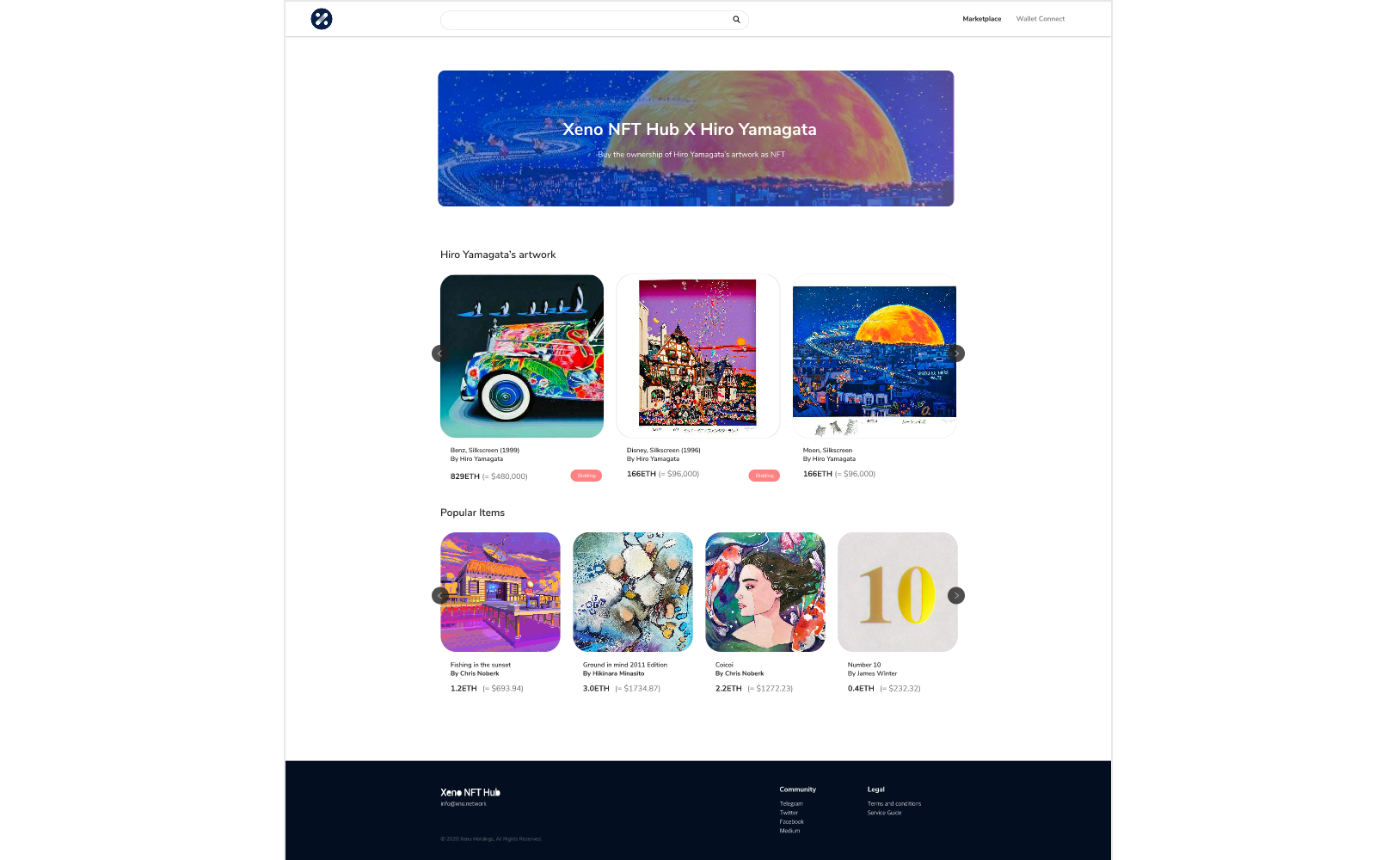
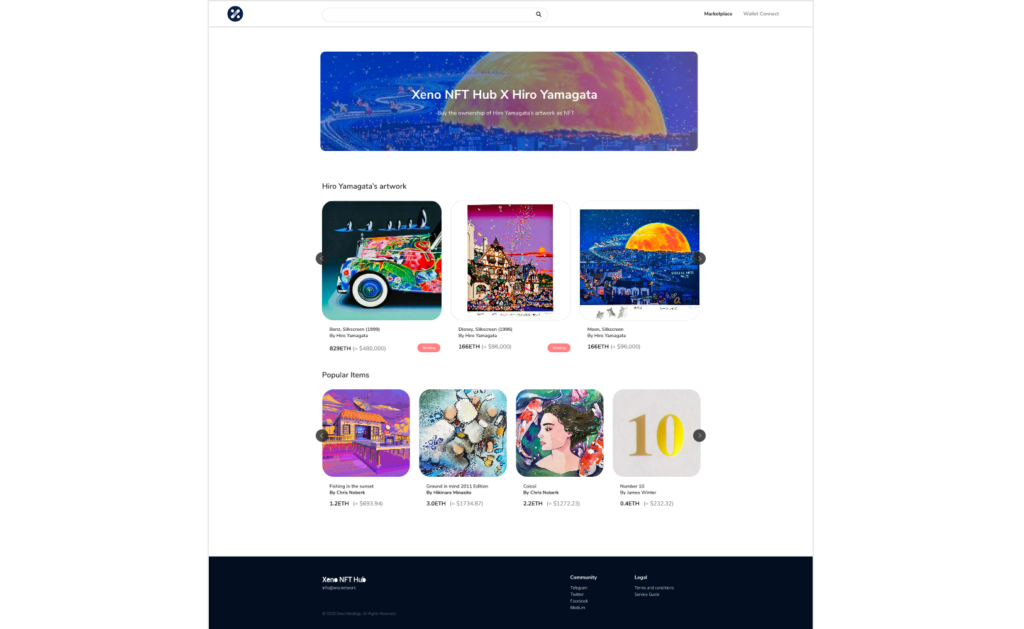
Hong Kong, Hong Kong, 24th December, 2020, // ChainWire //
The XENO NFT Hub (https://xno.live) will provide a crypto-powered digital items and collectables trading platform allowing users to create, buy, and sell NFTs. Additionally it will support auction based listings, governance and voting mechanisms, trade history tracking, user rating and other advanced features.
As a first step towards its fully comprehensive service, XENO NFT Hub launched a recent VIP service to select users and early adopters in December 2020 with plans for a full Public Beta to open in June 2021.
“NFTs are extremely flexible in their usage, from digital event tickets to artwork, and while NFTs have a very wide spectrum of uses and categories XENO will initially focus its partnership efforts and its own item curation on three primary areas: gaming, sports & entertainment, and collectibles.”, said XENO NFT Hub president Anthony Di Franco.
He also added “This does not mean we will prohibit other types of NFTs from our ecosystem However, it simply means that XENO’s efforts as a company will be targeted into these verticals initially as a cohesive business approach.”
Development and Procurement Lead, Gabby Dizon explained, “Despite our initial focus, we found ourselves with a unique opportunity to host some of the works of Mr. Hiro Yamagata. We are collaborating with Japanese artist Hiro Yamagata to enshrine some of his artwork into NFTs.”
Mr. Yamagata has…
-

 Blogs6 years ago
Blogs6 years agoBitcoin Cash (BCH) and Ripple (XRP) Headed to Expansion with Revolut
-

 Blogs6 years ago
Blogs6 years agoAnother Bank Joins Ripple! The first ever bank in Oman to be a part of RippleNet
-

 Blogs6 years ago
Blogs6 years agoStandard Chartered Plans on Extending the Use of Ripple (XRP) Network
-

 Blogs6 years ago
Blogs6 years agoElectroneum (ETN) New Mining App Set For Mass Adoption
-

 Don't Miss6 years ago
Don't Miss6 years agoRipple’s five new partnerships are mouthwatering
-

 Blogs6 years ago
Blogs6 years agoCryptocurrency is paving new avenues for content creators to explore
-
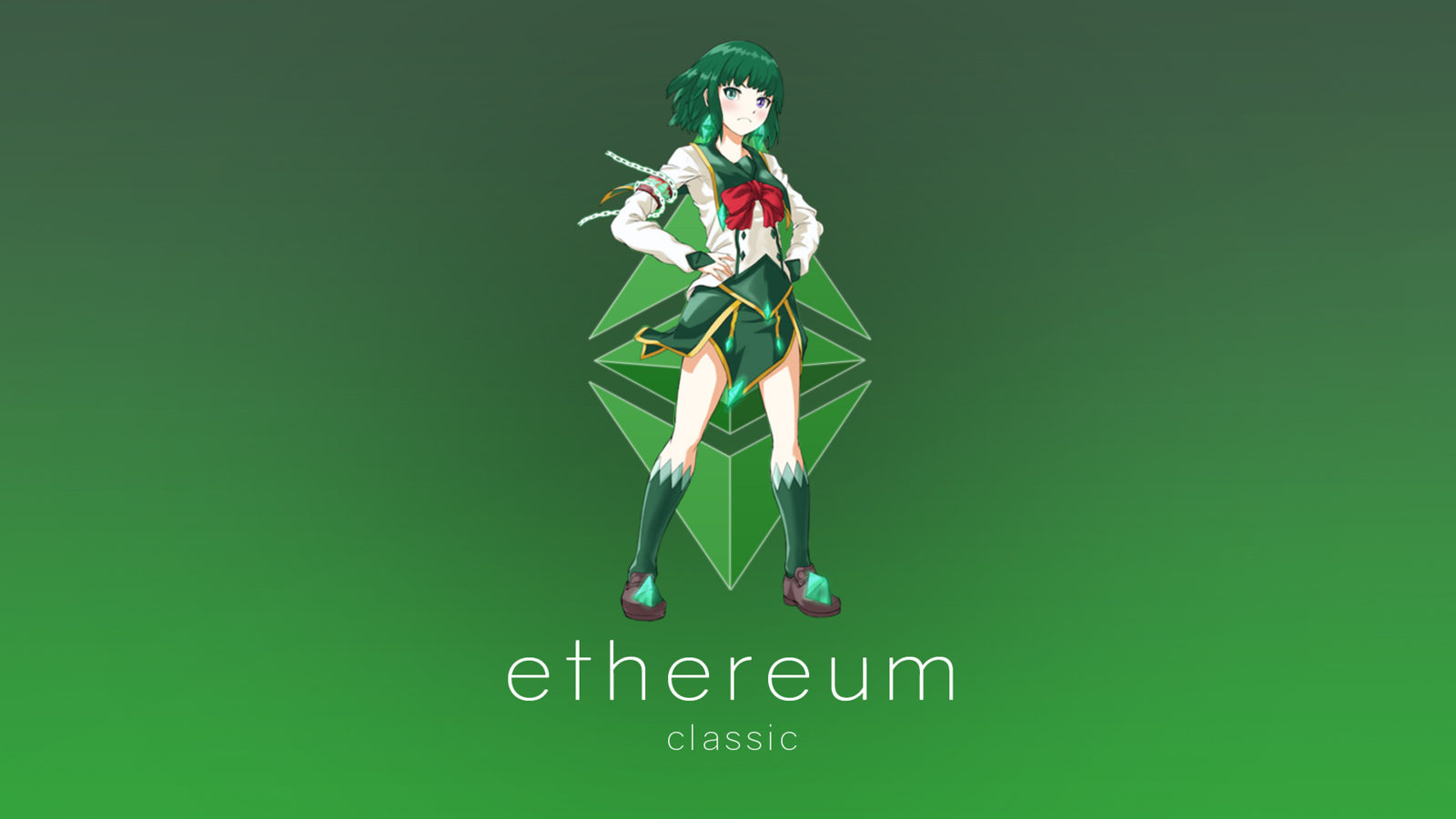
 Blogs6 years ago
Blogs6 years agoEthereum Classic (ETC) Is Aiming To Align With Ethereum (ETH)
-

 Blogs6 years ago
Blogs6 years agoLitecoin (LTC) Becomes Compatible with Blocknet while Getting Listed on Gemini Exchange















